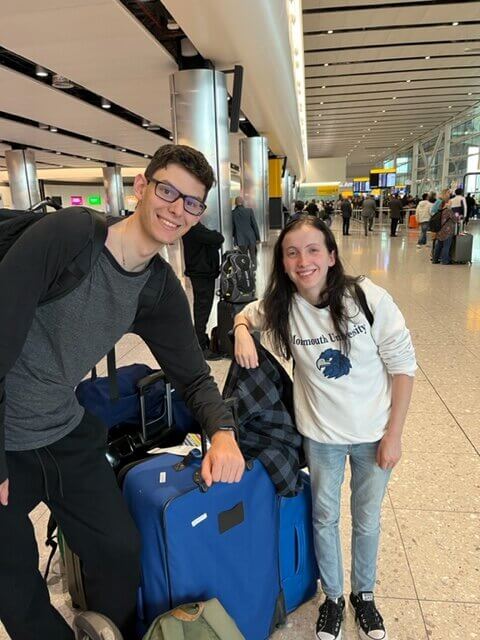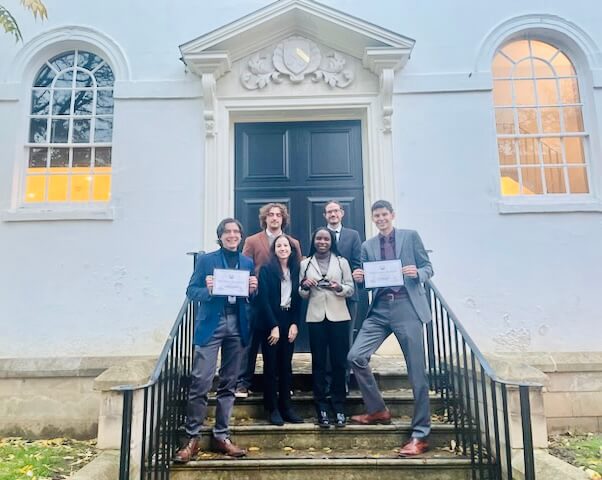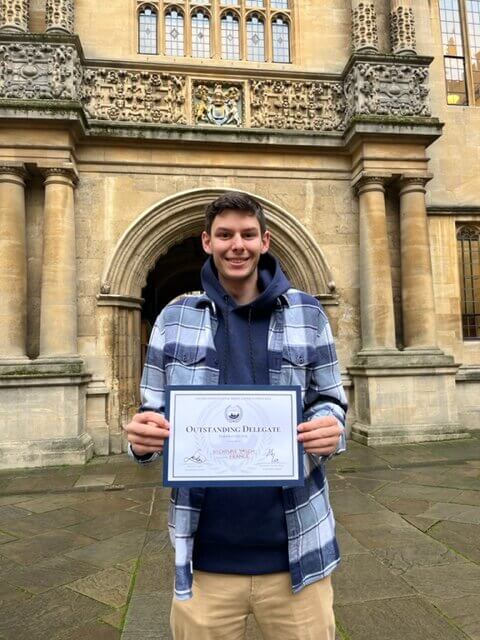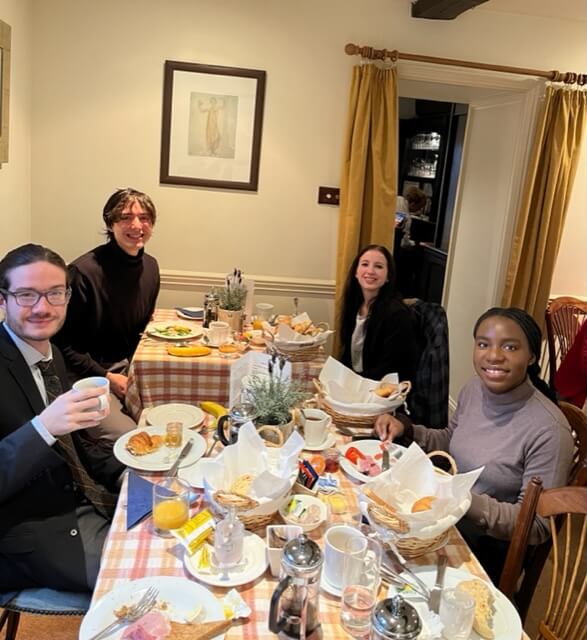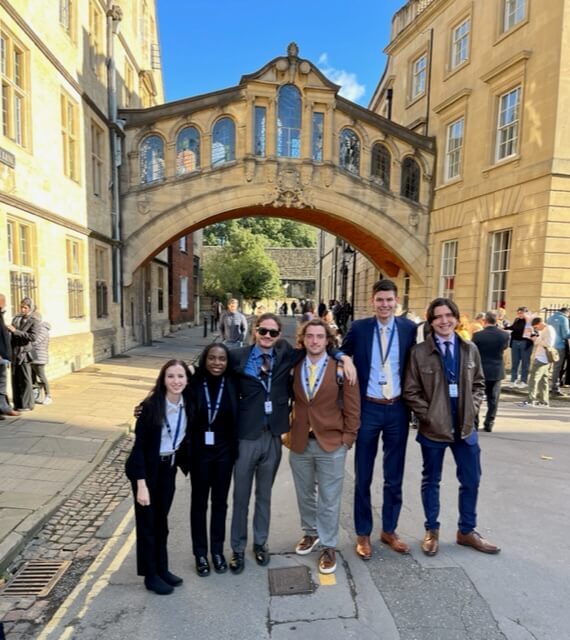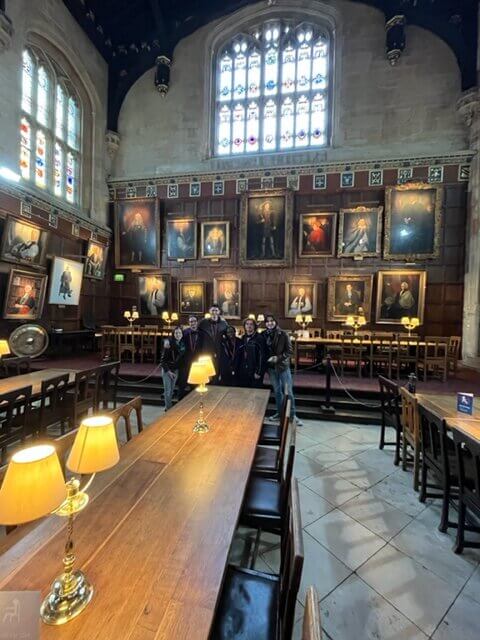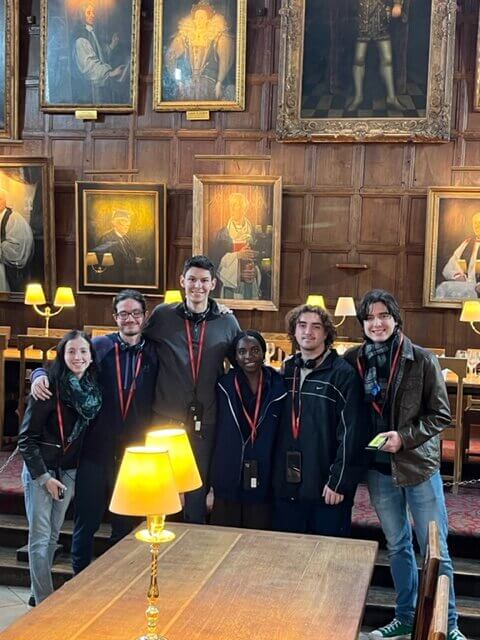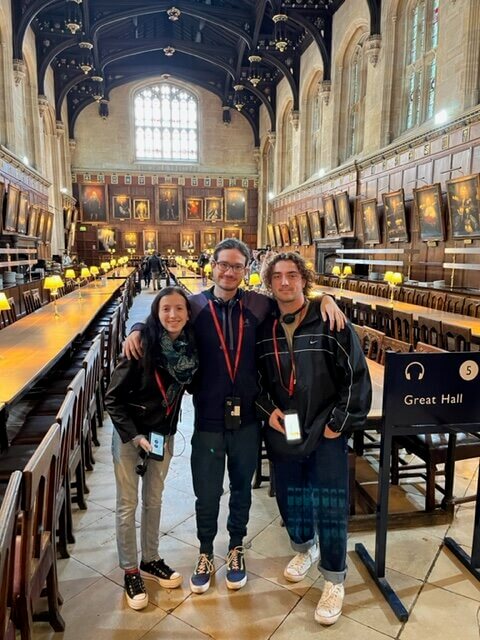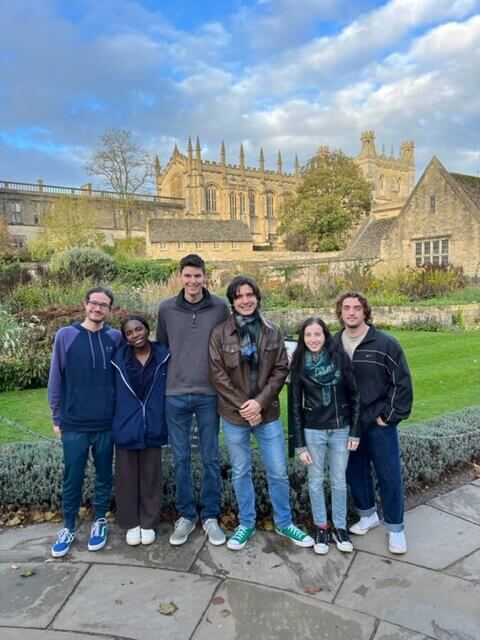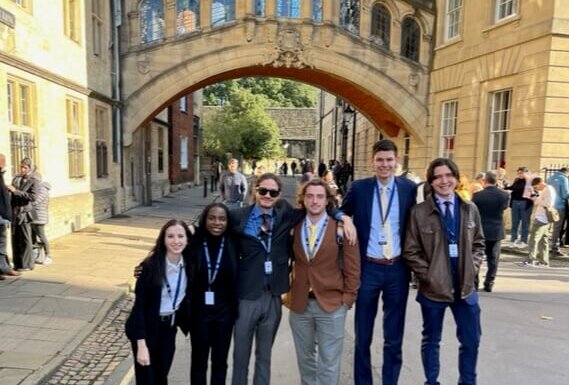Monmouth University’s Model United Nations Team competed at the Oxford University Model United Nations competition (OxiMUN), Nov. 4-6. Ken Mitchell, Ph.D., professor in the Department of Political Science and Sociology, served as faculty advisor for six students on the trip to Oxford. According to Mitchell, OxiMUN is one of the most prestigious competitions on the European Model United Nations circuit, attracting some of the United Kingdom’s top universities, including the University of Cambridge, London School of Economics (LSE), University of Edinburgh, University of Glasgow, University of Bristol, Queen Mary University, and Irish institutions, including University College Dublin, as well as European powerhouses, especially from The Netherlands and Belgium. Monmouth University’s team alone represented the United States at OxiMUN.
Monmouth’s head delegate, senior Nick Yalch, took home top individual honors as “Most Outstanding Delegate” for his performance representing France on a committee simulating the European Commission. Over the three-day contest, Yalch devised and negotiated policy solutions in two areas: “European Union-wide economic autonomy” and “European Union-wide national security autonomy.” With the former, Yalch researched and constructed an EU-wide lithium policy, consisting of new institutional and regulatory rules inspired by the recent U.S. Microchip Bill passed by the Biden Administration. Yalch researched German and French companies in the lithium sector and connected EU-wide autonomy in the lithium sector to larger EU goals around green energy/climate change, energy independence, and meeting the challenge of the U.S. and China regarding technological innovation in strategy industries. With the latter, Yalch advocated for a new relationship between the EU and NATO, supportive yet with clearer boundaries between the two institutions. Yalch participated as the only non-European student on the committee, so he had to first learn the rules and voting procedures of the European Commission.
According to Mitchell, Yalch made an impression on the Monmouth Model UN team as a first-year student by winning at the Harvard Model UN contest, continued competing during the pandemic as Model UN contests went online, and wrapped up his career with his biggest victory yet at OxiMUN.
Mitchell notes that European Model UN contests give team awards to “small delegations,” with eight or fewer students, and “large delegations,” with more than eight students. At the contest, Monmouth won “Most Outstanding Small Delegation,” beating out universities like Cambridge, LSE, Edinburgh, Glasgow, and others. According to Mitchell, the Small Delegation category is the most competitive, and team awards require all members of a delegation to perform at a high level. Mitchell said that Monmouth’s six students arrived at OxiMUN with a wealth of past Model UN experience and that after weeks of preparation their team award was entirely deserved.
Senior Catherine Melman-Kenny, a political science and anthropology major, and sophomore James Bellinger, a political science major, represented France and Azerbaijan on the UN’s Human Rights Committee. Their topic focused on the UN’s position on accessing the internet during crises such as natural disasters, political coups, wars, and famines. Mitchell said that Melman-Kenny and Bellinger “skillfully staked out a position between the absolutist views of full/unregulated access to the internet and ‘controlled access.’” Mitchell said that balancing disinformation and crucial crisis-oriented accurate information forces the UN into uncomfortable conversations and competing goals of rival countries. “Research on past crises and how access to information positively or negatively influenced the UN’s performance took center stage in the committee’s debates and negotiations. If access to the internet is to be regulated, the immediate challenge is how and under what institutional and regulatory arrangements? These matters were debated nonstop for three days,” Mitchell said.
Oliver Gaines, a senior history major, and Yalch competed as Austria and France on the European Commission. Both received compliments from the committee chair on their debate performances and background research.
Sabria Smith, a junior political science major, and Eric Machnicki, a senior political science major, represented France and Austria on the UN’s Environmental Program committee. Their topic focused on the UN’s sustainable development agenda and how it impacts or addresses marginalized communities such as indigenous groups, refugees, disabled people, and religious minorities. Here, the challenge called for participants to move beyond a mere rehashing of the UN’s current 2030 Sustainable Development Goals (SDGs)–and what works or does not work–and instead to dig deeper into specific SDG efforts and how these impact specific communities.
Mitchell said that the OxiMUN event was the final competition for the fall semester 2022, noting that over the course of the semester Monmouth sent around 50 students to compete at Boston College, Washington D.C., and Oxford, and taking home awards at all three contests.
Mitchell also said that Monmouth’s Model United Nations program is an example of the University’s commitment to issues of equity, diversity and inclusion. “Few other universities match Monmouth’s generous funding of their Model UN programs, something that opens up the valuable opportunities that MUN contests provide first-generation and minority students,” he said.
According to Mitchell, Model UN is the most popular academic extra-curricular activity in the United States, and has the added benefit of competition experience enhancing resumes as Monmouth University students compete for competitive jobs. Mitchell added his special thanks, along with those of his fellow program advisor Professor Kevin Dooley, and Monmouth’s Model UN students to President Leahy for championing the cause of Model United Nations.
During the spring semester, the Model UN team will field teams in contests hosted by Harvard University in February, at University College London in the UK in February, and at the University of North Carolina at Charlotte in March.
